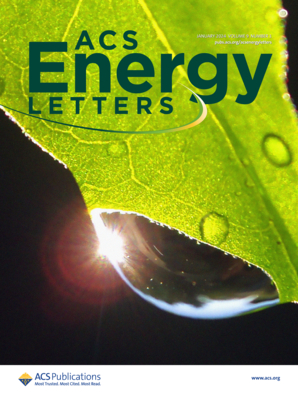行为代用指标通过其奖励(包括内生奖励)的时间进程进行竞争。
IF 19.3
1区 材料科学
Q1 CHEMISTRY, PHYSICAL
引用次数: 0
摘要
自然选择是缓慢的,因此行为目标必须以奖励模式为基础。成瘾与适应性选择的奖励方式相同,因此它们只能通过时间过程来区分。此外,奖励过程的可塑性比人们普遍认识到的要大,因此抽象目标是由其替代物的 "可读性 "决定的。本文章由计算机程序翻译,如有差异,请以英文原文为准。
Behavioral proxies compete by the time courses of their rewards, including endogenous rewards.
Natural selection is slow, so behavioral goals must be based on patterns of reward. Addictions are rewarded in the same way as adaptive choice, so they can be distinguished only by their time course. In addition, the reward process is more plastic than is generally recognized, so abstract goals are shaped by the "legibility" of their proxies.
求助全文
通过发布文献求助,成功后即可免费获取论文全文。
去求助
来源期刊

ACS Energy Letters
Energy-Renewable Energy, Sustainability and the Environment
CiteScore
31.20
自引率
5.00%
发文量
469
审稿时长
1 months
期刊介绍:
ACS Energy Letters is a monthly journal that publishes papers reporting new scientific advances in energy research. The journal focuses on topics that are of interest to scientists working in the fundamental and applied sciences. Rapid publication is a central criterion for acceptance, and the journal is known for its quick publication times, with an average of 4-6 weeks from submission to web publication in As Soon As Publishable format.
ACS Energy Letters is ranked as the number one journal in the Web of Science Electrochemistry category. It also ranks within the top 10 journals for Physical Chemistry, Energy & Fuels, and Nanoscience & Nanotechnology.
The journal offers several types of articles, including Letters, Energy Express, Perspectives, Reviews, Editorials, Viewpoints and Energy Focus. Additionally, authors have the option to submit videos that summarize or support the information presented in a Perspective or Review article, which can be highlighted on the journal's website. ACS Energy Letters is abstracted and indexed in Chemical Abstracts Service/SciFinder, EBSCO-summon, PubMed, Web of Science, Scopus and Portico.
 求助内容:
求助内容: 应助结果提醒方式:
应助结果提醒方式:


